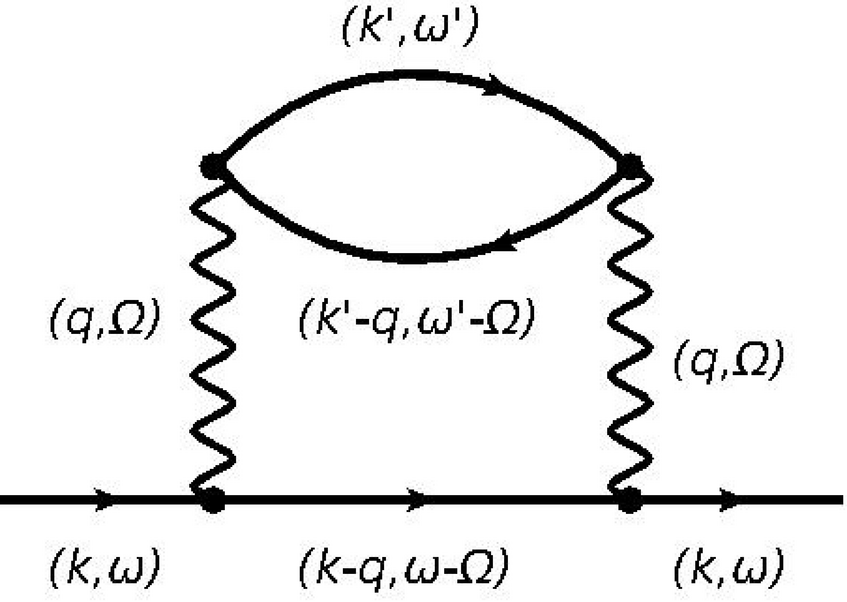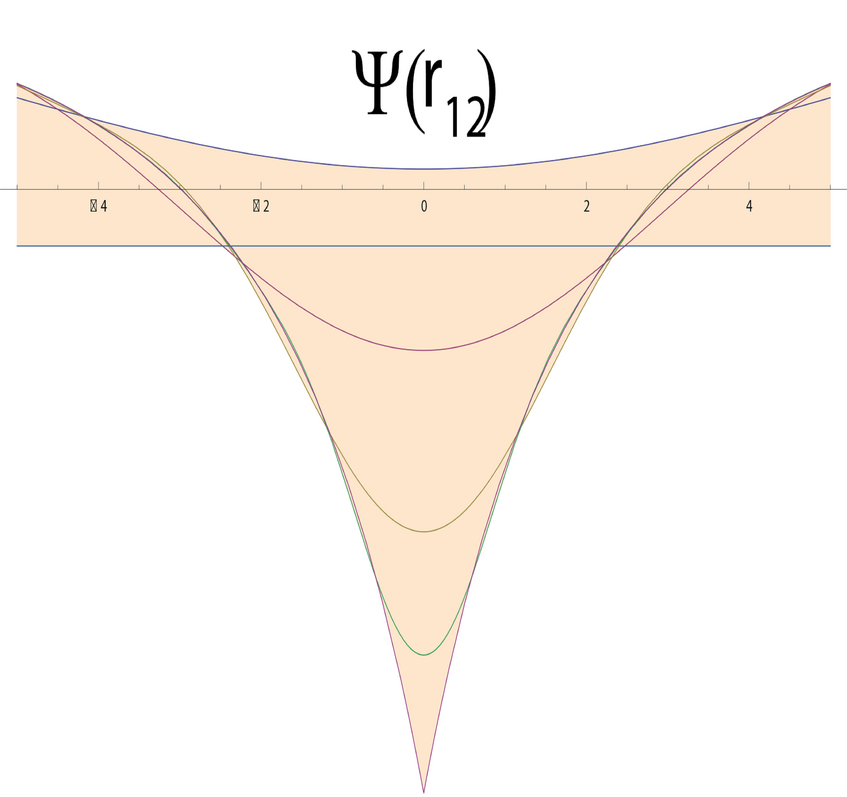
Figure: GW Diagram: Diagrams can easily be translated into integrals and help keep track of the infinite series of disturbances for the greening function.
Quantum Field Theory
Since the DFT unfortunately says nothing about excited states, methods from quantum field theory (QFT) are used. The QFT describes the movement (propagation) of a particle through an electron gas by using so-called Green’s functions.
In solid state physics the so-called GW approximation is often used, in which only certain types of processes in the infinite disturbance series for the Green’s function are taken into account for propagation. The disadvantage of this method is the enormous computing effort, which is why a GW calculation can only be carried out for a few hundred electrons.

Figure: Where two electrons meet, the wave function has a so-called Cusp (vertex) which is one of the reasons for difficulties in calculating the exact wave function.
Quantum Chemistry
In quantum chemistry, attempts are made to achieve particularly high accuracy, which is why DFT cannot be used.
Instead, methods for the direct calculation of the multi-electron wave function Ψ play an important role. However, except for the simplest of these methods, the Hartree-Fock method, the computational effort is very high.
Due to increasingly efficient algorithms and faster computers, these methods have become more and more interesting for solid state physics in recent years.
